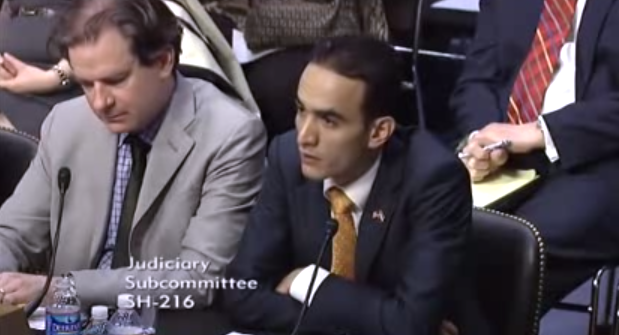If I could slip a couple of quotes into the water supply
Thursday, May 9th, 2013[ by Charles Cameron — pretty much just thinking out loud about mental processes ]
.
The thing is, changing minds is a delicate business, pushing too hard can be counter-productive, and all the more so when the conclusion you want to bring about is clean contrary to the ethos of those you would far rather see thinking — and acting — very differently.
**
My first example doesn’t actually need to be dropped into the water supply, it’s there already, in the public discourse. It is taken from Farea Al-Muslimi‘s testimony on Drone Wars: The Constitutional and Counterterrorism Implications of Targeted Killing, April 23, 2013:
Had the United States built a school or hospital, it would have instantly changed the lives of my fellow villagers for the better and been the most effective counterterrorism tool. Instead of first experiencing America through a school or a hospital, most people in Wessab first experienced America through the terror of a drone strike. What radicals had previously failed to achieve in my village, one drone strike accomplished in an instant: there is now an intense anger and growing hatred of America.
If that can quietly penetrate thinking in Washington DC, it might alert us to our tendency to act with thought only for direct consequences, never for unanticipated second and second plus order effects…
And diminish hatred. And thereby also diminish radicalization and recruitment.
**
Knowing what words might best counteract pro-jihadist sentiments among potential recruits for purposes of CVE is a far trickier business, and I don’t think it’s my job or the job of government to attempt to influence anyone’s religious belief directly — as I said above, it all too easily backfires.
Nevertheless, I think that getting a clear picture of how the jihadist mind typically works is a useful exercise, and I’ve suggested before now that accepting the concept of jihad as individual obligation — fard ‘ayn — marks a decisive turning point. That’s why Abd al-Salam Faraj made it a “sixth pillar” of Islam and the centerpiece of his tract The Neglected Duty — see also this article on Faraj in Islamopedia.
Having said that, these words of bin Laden to Sheikh `Atiyya should at the very least give pause to any who have, like Faisal Shahzad, obtained US citizenship under oath:
You have perhaps followed the media trial of brother Faisal Shahzad, may God release him, during which the brother was asked to explain his attack [against the United States] in view of having taken an oath [not to harm it] when he was awarded his American citizenship. He responded that he lied [when he took the oath]. It does not escape you [Shaykh `Atiyya] that [Shahzad’s lie] amounts to betrayal (ghadr) and does not fall under permissible lying to [evade] the enemy [during times of war]…please request from our Pakistani Taliban brothers to redress this matter…also draw their attention to the fact that brother Faisal Shahzad appeared in a photograph alongside Commander Mahsud. I would like to verify whether Mahsud knew that when a person acquires an American citizenship, this involves taking an oath, swearing not to harm America. If he is unaware of this matter, he should be informed of it. Unless this matter is addressed, its negative consequences are known to you. [We must therefore act swiftly] to remove the suspicion that jihadis violate their oath and engage in ghadr.
That’s from Letters from Abbottabad: Bin Ladin Sidelined? by Nelly Lahoud et al, Harmony Program, the Combating Terrorism Center at West Point, 3 May 2012, p. 36.
For convenience — and here you see the compulsive editor in me helplessly at work — I’d leave out the names and bracketed explanatory phrases, and give the essence of his remarks thus:
When a person acquires an American citizenship, this involves taking an oath, swearing not to harm America. … The brother was asked to explain his attack in view of having taken an oath when he was awarded his American citizenship. He responded that he lied. It does not escape you that amounts to betrayal (ghadr) and does not fall under permissible lying to the enemy …
**
Obviously, that single quote doesn’t accomplish total de-radicalization — but what it might do is give some wannabes pause for further reflection, And as JM Berger has pointed out recently:
there are hundreds of thousands to millions of people in the world who are radicalized, and only a handful take up violence
My point here is that if bin Laden himself counseled forms of restraint which young jihadi wannabes acted in ignorance of — how much more would an aspirant need to exercise caution, knowing that divine sanction depends on an accurate theological understanding of what is halal and what haram?
Because once an individual becomes convinced that jihad is an individual obligation, the fear of being an irhabi terrorist rather than a mujahid fi sabil Allah is about the only restraint left — and that theological distinction, which at the moment of death separates Jannah from Jahannam, paradise from hell, is way above the wannabee’s theological level of competence.
Something that bears thinking about, no?








